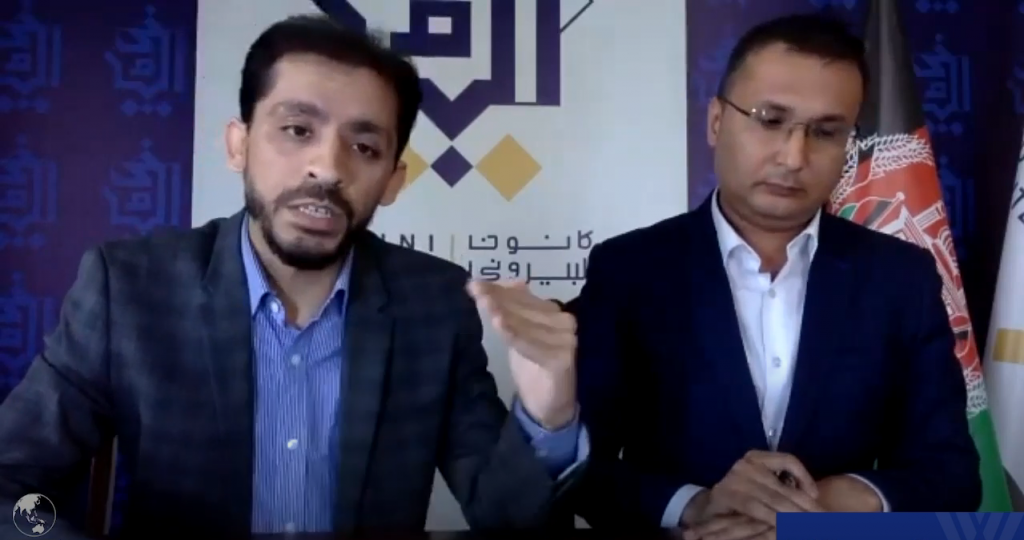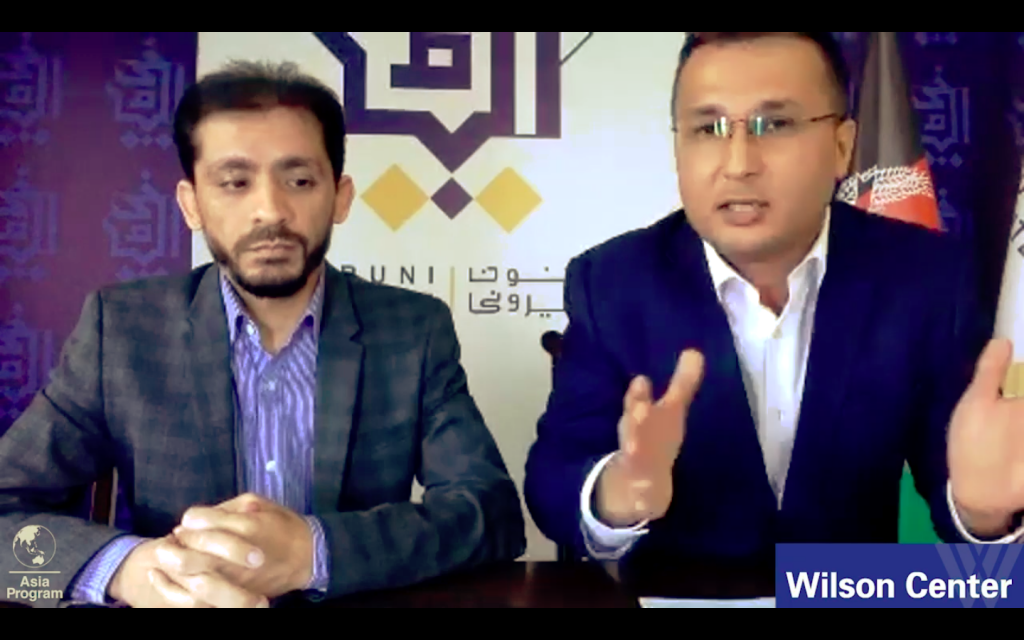May 14, 2020
Biruni Institute attended the webcast on “Economic Implications of Covid for South Asia” hosted by the Wilson Center. The webcast brought together economists from Afghanistan, Bangladesh, India, and Pakistan to discuss the potential short and longer-term economic impacts of COVID-19 in the region, how governments should respond, and what economic stress in the region could mean for the world on the whole.

Dr. Omar Joya, Head of Research at the Biruni Institute, presented the main messages and economic forecasts of the Afghanistan Economic Outlook (April edition), and said that an economic recession was inevitable in Afghanistan. He argued that “Afghanistan had higher economic vulnerabilities to exogenous shocks compared to other countries in the region, and thus the economic impact of Covid-19 on the Afghan economy will be substantial.” He explained that depending on how the pandemic will evolve, economic contraction can range from 3.3 percent to 9.9 percent from the moderate to severe Covid-19 scenarios.

Subsequently, Nazir Kabiri, Executive Director of the Biruni Institute, spoke about the implications of Covid-19 on regional cooperation. He said that Afghanistan-Pakistan trade remains limited because of border restrictions. He argued that “chances that Covid-19 pandemic to unlock the potential of regional cooperation will remain low; the regional geopolitics is such that full and durable cooperation to materialize is not foreseeable in the near future.”
The Wilson Center, established in 1968 in Washington DC, is a key non-partisan policy forum in the United States that aims to tackle global issues through independent research and open dialogue.
Here you may watch the video recording of the Institute’s intervention during the session.
The request cannot be completed because you have exceeded your quota.


